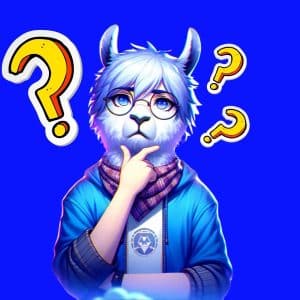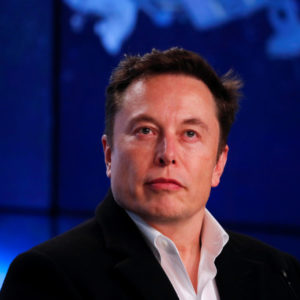With over 18 years of leadership experience at the intersection of business, product and finance roles, Deepinder Dhingra brings his skill and knowledge from companies like Mu Sigma. He has worked in advanced business planning, business analytics, big data and decision sciences, and has led companies in areas like products, strategy, pre-sales, strategic partnerships, new market development, investor relations, among others.
Analytics India Magazine interacted with Dhingra, who is currently the chief product officer at the San Francisco-based Noodle AI, with offices in Palo Alto and Bengaluru. In this candid chat Dhingra shares his ambitious plans for the company, how they aim to a pioneer in the enterprise AI domain, their hiring plans, and challenges they may face.
Analytics India Magazine: What is your vision for Noodle AI? Do you plan to expand the product portfolio?
Deepinder Dhingra: Noodle AI was started in the early 2016 with a vision to bring technologies like AI and advanced learning algorithms in the forefront in the enterprise. Our belief is that organisations can make better use of AI technologies in their business operations — to better interact with customers, do better inventory allocation, build better product assortments, among others. I am really excited to be part of Noodle.ai and this mega trend of EnterpriseAI. We have assembled a world class team leveraging talent pool the across US and India. In a short time-span of just two years we have achieved significant market validation and growth both in terms of customer acquisition and subscription momentum along with number of employees (over 100 employees now!).
Our product is the BEAST- a combination of our AI platform and applications. At the core is our supercomputing nucleus that brings together Supercomputing Hardware, Advanced AI and ML algorithms, Data and a next-gen software platform for AI applications. Around this platform we are building ten interconnected AI applications across all core business operations related to Demand Shaping and Supply Execution.
In terms of expanding our product, we are expanding our AI application portfolio to include both demand and supply side applications focused on different industry needs as well as deepening the platform. The industrial areas that we are focussing on include Manufacturing (process and discrete), Logistics and Distribution and CPG and Retail, among others. For these industrial areas we are building vertical domain specific AI applications.
AIM: Tell us about the BEAST by Noodle AI and how is can be used by the enterprises
DD: There are 10 AI modules for each industry — five on the demand shaping side and five on the supply execution side. They are:
Demand Shaping
- Customer AI
- Product AI
- Pricing AI
- Promotions AI
- Sales AI
Supply Execution
- Materials AI
- Production AI
- Logistics AI
- Warehouse AI
- Inventory AI
Each of these modules comes with interconnected applications – for example to help with better demand prediction, optimise inventory allocation under volatile demand, anticipate in-bound materials risk, predict production delays, optimise labour planning, etc. This is in line with our efforts to bring a System of Intelligence within the enterprise. These interconnected applications will address all the core functions of business operations planning and execution across an organisation.
AIM: Having worked at the analytics, business intelligence forefront earlier and then moving to technology such as AI, how has the shift been? How has been the journey so far?
DD: As the head of products and strategy at Mu Sigma, I helped it grow into a category defining unicorn company. I want to do the same at Noodle. I believe AI and machine learning is the culmination of the earlier trends of business intelligence, advanced analytics and Big data. We are now at a turning point where we have the right combination of supercomputing technology across hardware and software along with advanced ML and deep learning algorithms to connect and process the data from both internal enterprise and external data sources. This is the point where AI is going to become institutionalised and every organisation is going to have it. This is the next generation of Big Data analytics, but with a 10X leap in capability.

AIM: What are the key takeaways from your previous experiences that you plan to implement at Noodle AI?
DD: To some extent organisations are still facing key challenges around building the right team, ensuring right infrastructure of hardware and software, addressing the right business use cases to drive value, figuring out the right data sources (external and internal), etc. amongst others. These are some of the challenges that we are also addressing at Noodle but in a very integrated approach. Traditional approaches have been to address these challenges in an isolated manner – one by one. E.g. companies that focus only on data and data sources, or companies that focus only on algorithms only or companies that focus only on building the right team or on discovering the right use cases and signals, etc. We believe that these isolated approaches are insufficient. Our integrated model of bringing the right combination hardware, software, algorithms and data provides an exponential leap in speed to value and performance for our customers. Our approach brings a unique mix of deep data engineering, data science, software engineering and design technologies coming together. This is a 10X difference in terms of institutionalisation of Enterprise AI within the enterprise. We at Noodle believe that to institutionalise EnterpriseAI it needs to become an entirely new technology layer of System of Intelligence in the enterprise and therefore we are completely product and platform based in our approach.
In addition, in a world where there is increasing complexity and uncertainty we are pioneering a new paradigm of intelligence enabled by AI. For example: The earlier paradigm of analytics was static where you built a model and it stays (read decays) for a while until you refresh it. But now our AI paradigm builds continuously learning and adapting models. The earlier paradigm of analytics was deterministic in its predictions whereas our AI paradigm is probabilistic encompassing a risk and opportunities perspective along with being forward looking and anticipating. These are a few key differentiated aspects that we are adopting and pioneering with AI at Noodle.
AIM: Are you looking at hiring more people in your team? What kind of knowledge and skill sets do you look for while recruiting?
DD: Yes, we are expanding the product team and hiring Data scientists, AI and Machine Learning Engineers, Big Data engineers, Software Engineers, UI engineers, Data Integration Architects, DevOps engineers and Supercomputing technologists. We are significantly expanding the product and engineering team within Noodle
Some of the skill sets we are looking for are Hadoop, Spark, Kafka, proficiency and understanding of Deep Learning, Reinforcement learning and advanced machine learning algorithms. For supercomputing engineers, we want people who understand programming with GPUs as well as building scalable cloud-oriented infrastructures. We are also looking for product managers and business domain leads with familiarity of various aspects of demand and supply operations in our target industries.
AIM: What are the most significant challenges that may come up in your way of innovation being at the forefront of most debated technology — AI?
DD: Enterprise AI space is completely different from Consumer AI. When we talk about consumer AI, we talk about Alexa, Echo or Chatbots, and that is maturing fast due to availability of labelled training data. But with EnterpriseAI, data is dirty, disparate and heterogeneous. We have to apply different approaches and the challenge here is how do you help enterprise customers understand what to expect from Enterprise AI.
AIM: What plans for artificial intelligence at Noodle AI?
DD: We believe EnterpriseAI is about augmenting human intelligence so that humans and machines can work in harmony. It is about letting the machines do what they do best and freeing up the human being’s creativity to make better decisions. The paradigm of AI we are pioneering is about helping organisations sense risks and opportunities before they occur, predict and anticipate impact outcomes and make recommendations that augment human intelligence better than anywhere else
AIM: What are some of the most important contemporary trends that you see emerging in this space?
DD: Yes, a couple of trends among others – first is the area of transfer learning, how models trained in one domain can be used in other domains. We are witnessing a lot of this in the ConsumerAI space, but we also feel that it has potential Enterprise AI at different levels and we are already innovating in that direction. The other trend is Auto AI powered by GPU computing and Deep learning algorithms

























